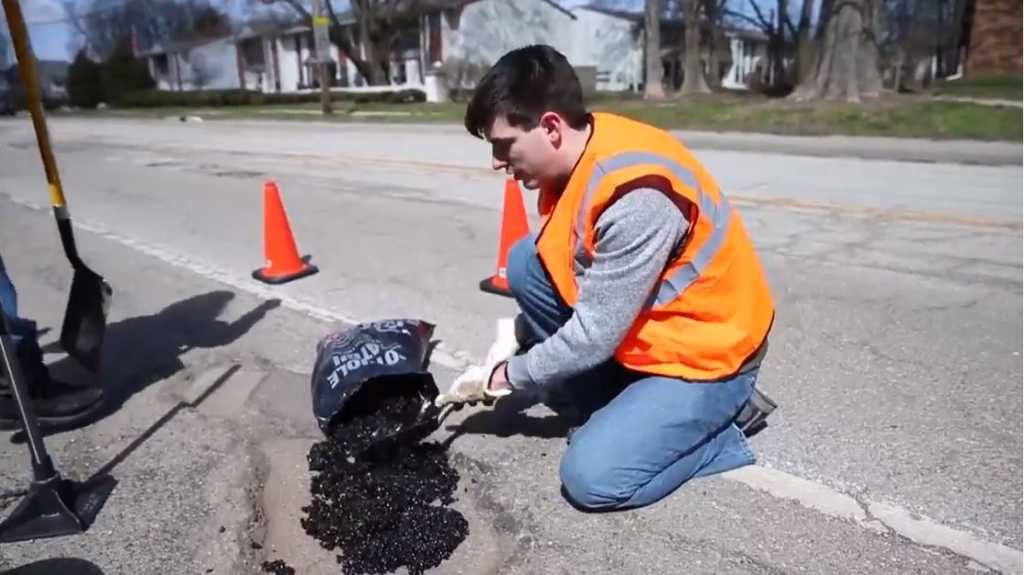After years of battling sluggish city council bureaucrats to repair the pothole-riddled streets of Indianapolis, two local men have taken matters into their own hands. Chris Lang, 22, and Mike Warren, 28, set up an organization, Open Source Roads, to gather a team of volunteers to fix pocked city roads.
“We want to fill a lot of potholes, and we want people to help out and see that we don’t need to rely on this monopoly for it, and I want that to be what starts the people in charge talking about change,” Lang told USA Today. “If the city is going to fail at their own monopoly, why should they have that monopoly?”
It might seem like a minor infrastructure issue, but the city’s pothole problem is alarmingly expensive. A Department of Public Works audit rated theIndianapolis roads “poor” and estimated it would take $732 million to upgrade them to a higher standard. Fluctuating temperatures and a severe winter have devastated the roads — auto shops are working overtime to repair vehicles that have fallen victim to the ubiquitous craters.
Despite Warren and Lang not possessing a permit for their work, they have yet to be stopped. Apparently even local authorities are fed up with the situation, and these are the only two people willing to do something about it.
Lang, a college student inspired by the libertarian views of “Parks and Recreation” character Ron Swanson, works on the pothole project between taking classes for a mechanical engineering degree. Warren fills as many potholes as possible between his two other jobs.
The pair filled over 100 potholes last year, and are hoping to do more this year. They estimated their expenses so far to be somewhere between $800 and $1,000 on tools and asphalt, which they’ve been able to partly fund via their GoFundMe campaign.
In the page’s description, Warren explains the frustration and commitment to problem-solving that would eventually lead to the creation of Open Source Roads.
“This is my attempt to fix the potholes in my neighborhood. These potholes have both existed from last year and have spawned from the rampant winter weather that has impacted Indy. The city is failing to do their job fully with the money they have, despite a $2 billion surplus.
The city has been out to fix many of them, but despite their efforts, potholes still exist in the neighborhood, including the one pictured. These potholes are harmful to vehicles, including bikes (such as the one I exclusively ride) and mopeds. People have been calling the city to come out and finish the job, but to no avail. Given the importance of this to me, I have decided that, if the government won’t do it, maybe I ought to do it myself.”
Warren, who studied computer science at IUPUI, is hoping to develop a website and app that will highlight the location of potholes that still need repairing. A regular pothole maintenance crew would usually consist of five or six people, with a few of them ensuring the safety of those working on the pothole in an open road.
While Lang and Warren do take safety precautions such as erecting barriers and signs, they also make sure they work at times when traffic is light. Drivers, they say, often shout words of encouragement and support to the men as they work —they have even been thrown food and cigarettes for their trouble!
“The common belief is that the city is failing us,” Lang told KTVB-TV. “So, we’ll do it if they won’t.”



